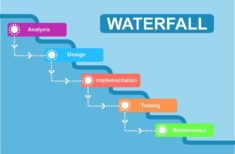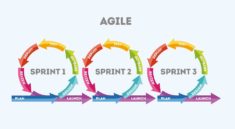
“In urgency” refers to a situation in which, due to unforeseen circumstances, projects may be commissioned on short notice to mitigate temporary risks or meet new emergent strategic goals.
In these circumstances, there may be a tendency - due to a plethora of reasons - for Project Management Methodology (PMM) to be overlooked. For example, the team may lack both project management experience or knowledge about project management tools and best practices that can be used "in urgency."
Why the fuss with Project Management Methodologies?
Project management methodologies (PMM) are a collection of different approaches, tools, templates, and techniques.
A common definition of a project management methodology involves the organization and standardization of project management activities to consistently deliver project objectives. Moreover, PMM and project success have been found to be positively related, establishing PMM as a success factor in project success.
It follows then that an organizations’ strategic goals, attained through project management, require some form of PMM in order to succeed. Also, it is suggested that “regardless of whether using a predictive, iterative, incremental or agile approach, organizations that use some form of formal PMM approach are successfully meeting their goals.”
Thus, in light of the relation of PMM to a project's success, it would be worthwhile to not forego it even in the most urgent circumstances.
Ensuring PMM in urgency
"In urgency" situations cannot always be predicted by organisations. To ensure PMM applications are carried out in all circumstances, a worthwhile strategy is to provide timely PMM training to employees and/or access to on-demand PMM tools.
However, when selecting PMM practices and tools in an urgent situation, it is important to understand the difference between:
- Waterfall or Traditional methodologies, and
- Agile or Iterative methodologies.
PMM approaches in urgency
According to Michael Pace, Executive Professor, Department of Management Texas University, “at its core, the traditional approach involves the mechanistic division of work, with an underlying assumption of manageability and predictability. The focus on planning helps with the delivery of project success.” According to Atlassian, a UK-based software company developing products for software development and project managers, “the waterfall project management approach follows a linear, sequential formula. It works well for work that has predictable, recurring processes”

Figure 1-Depiction of Waterfall Methodology
On the other hand, pace says, “the core concept of agile project management is that better up-front planning cannot be guaranteed, so a different approach needs to emphasize continuous planning.”

Figure 2-Depiction of Agile Methodology
According to Atlassian, “agile project management is an iterative approach to delivering a project, which focuses on continuous releases that incorporate customer feedback. The ability to adjust during each iteration promotes velocity and adaptability. This approach is different from a linear, waterfall project management approach, which follows a set path with limited deviation.”
With the differences between traditional and agile project management methodologies juxtaposed, it becomes clear that agile methodologies are more appropriate in urgent circumstances to the emergent nature of project requirements. This becomes even more applicable for projects that are particularly software-based, which are now by standard delivered iteratively using agile methodologies or via a mix of both traditional and agile methodologies.
Applying agile PMM in urgency?
Applying agile PMM can be as simple as setting up a board in the office - à la Kanban methodology - and creating three columns representing to-do, in progress and done. This provides a visual for all team members regarding the progress of work items and allows for easy prioritization and reprioritization, as well as delegating work.
Applying agile PMM can also be done using Software-as-a-Service (SaaS) tools, including Jira Software, Trello, and Projectplace. Advantages of using these tools include:
- immediate application,
- geographically distributed teams can use them together, and
- monitoring can be done using in-built functionality.
Disadvantages, however, include:
- a need for prerequisite knowledge of using specific tools and of PMM itself.
As stated above, training on PMM tools should be done beforehand in anticipation of urgent situations.
A cost-benefit analysis may also be worthwhile when choosing a particular tool as they have different subscription costs and subscription plans.
The benefits of applying PMM to ensure a project’s success are well documented. The variety of available SaaS tools and different types of agile methodologies that exist today make it extremely easy and worthwhile to apply PMM even during "in urgency" situations.
By the same author:
Guidelines for project management success: choosing a methodology
Guidelines for project management success ii: leadership styles
Image:
iStock







